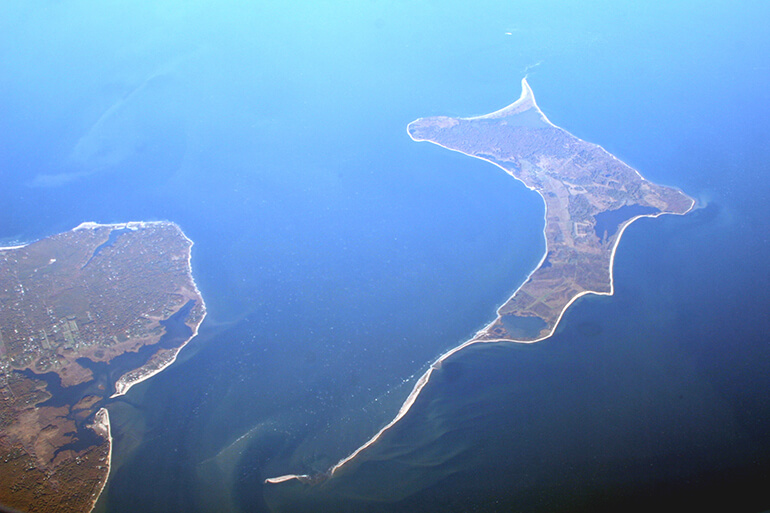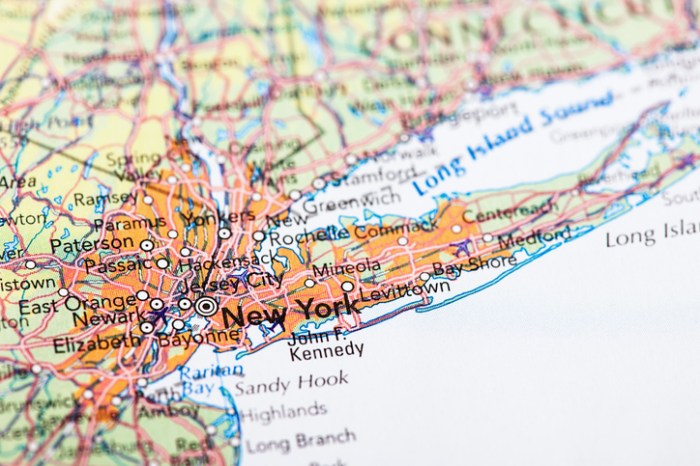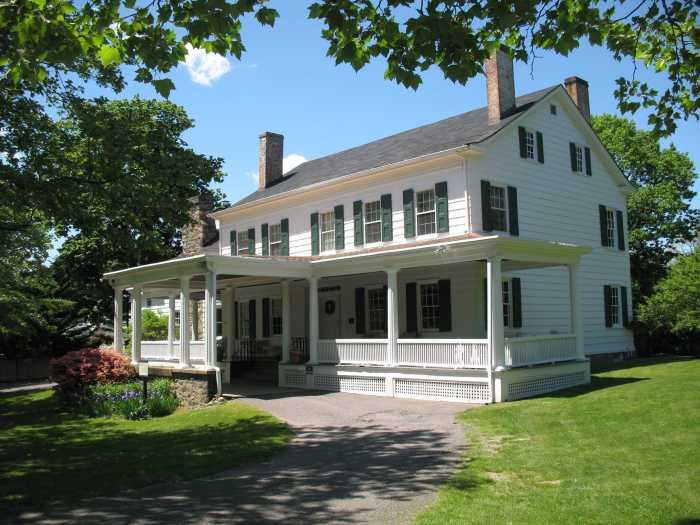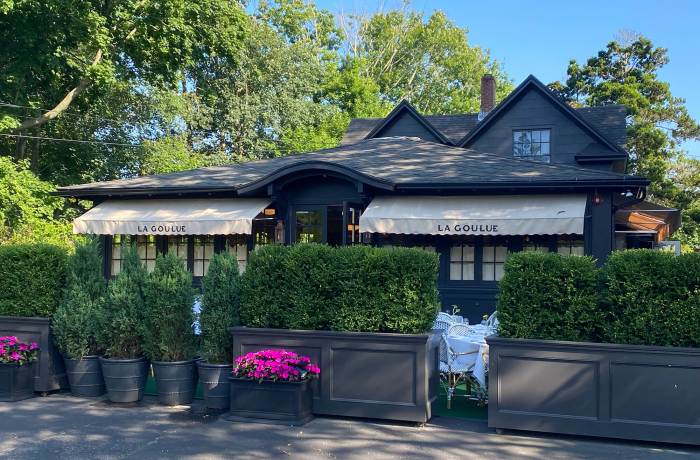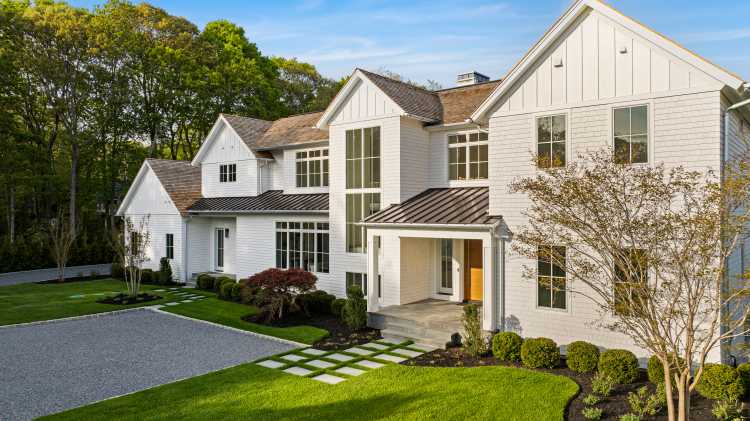What is the long-term future for Gardiners Island—the historically and environmentally important 6-mile- by 3-mile-long island sitting between the twin forks of eastern Long Island?
The island has been owned by the Gardiner family since 1639 when Lion Gardiner was rumored to have purchased it from the Montaukett Indian chief Wyandanch for, as writes Marilyn Weigold in her book Peconic Bay: Four Centuries of History on Long Island’s North and South Forks, “a big black dog, rum, and a couple of blankets.”
It’s among the largest privately owned islands in the U.S. and was the first English settlement in what’s now New York State. There are historical buildings. It’s home to hundreds of bird species, lagoons and freshwater ponds, and 1,000-acre Bostwick Forest, the largest stand of white oak in the Northeast.
The island’s sole owner now is Alexandra Creel Goelet. She is an ardent environmentalist with a master’s degree from the Yale School of Forestry. Her husband, Robert Goelet, who died in 2019, was a history enthusiast, president of the New-York Historical Society, and a strong environmentalist, too, and was president of the New York Zoological Society and American Museum of Natural History. His family has been enormously wealthy, as owners of considerable real estate in Manhattan.
I initially went to Gardiners Island in 1971 on assignment for the Long Island Press to report on a large campout of Boy Scouts. I then interviewed Robert David Lion Gardiner, Ms. Goelet’s uncle, who described himself as the “16th Lord of the Manor.” The next year for the Press I covered Gardiner’s run for the U.S. House of Representatives on the Conservative Party ticket. He did that as a protest to the effort by Otis Pike, Democratic incumbent in the 1st Congressional District, to make Gardiners Island a national monument under the U.S. Department of the Interior.
Pike said: “If anyone can show me how we can preserve open space and trees and pure air and clean water in America without government action, I’ll be happy to recommend it.”
In his campaign, Gardiner accused Pike of being a “socialist” in his move. (Later in his life, Gardiner would say he was not opposed to ownership of the island by the government or a private conservation group. He died in 2004.)
With Gardiner’s death, Mr. and Mrs. Goelet got ownership of the island. In 2005, a 20-year conservation easement covering more than 95% of the island was arranged with the Town of East Hampton.
However, Lee Koppelman, executive director of the Long Island Regional Planning Board and long the Suffolk County Planning Department director, in a 2001 article in The New York Times, said: “The overriding concern is for the long-term future.” Koppelman recommended that the “development rights” for the island be purchased by government—the basis of the Suffolk County Farmland Preservation Program which Koppelman was involved in creating. It pays farmers the difference between what their land is worth developed and if kept in agriculture. In return, the title to the property is restricted to agricultural use in perpetuity.
Ms. Goelet, however, responded saying she and her husband had “willingly” supported preservation of the island and, “My children [a son and daughter] intend to carry on this tradition.”
Gardiners Island has not had a financially seamless history. In the Depression of the 1930s, a mortgage Jonathan Gardiner held on the island was not paid and foreclosure was imminent. “With the sale pending,” the Long Island Historical Journal has related, there were proposals to have Gardiners Island become a site for a casino, hotel, and race track. Just before the scheduled auction, Sarah Diodati Gardiner “came to the rescue,” it noted, and acquired the island. She had no children and died in 1953. Her will provided for her niece Alexandra Creel (who died in 1990 and was the mother of Alexandra Creel Goelet), and nephew, Robert David Lion Gardiner, owning the island under a trust.
Even for the very wealthy, over the long term there are financial ups and downs. With a development rights purchase, the Goelets and their descendants would retain full ownership and full control of the island.
As of this year, 2023, the easement expires in two years. With a development rights purchase there would be, in effect, a permanent conservation easement for Gardiners Island. That way, there would be a legal guarantee that what Koppelman called “perhaps the most important offshore island on the entire Atlantic seashore from Maine to Florida” would be saved for all time.




